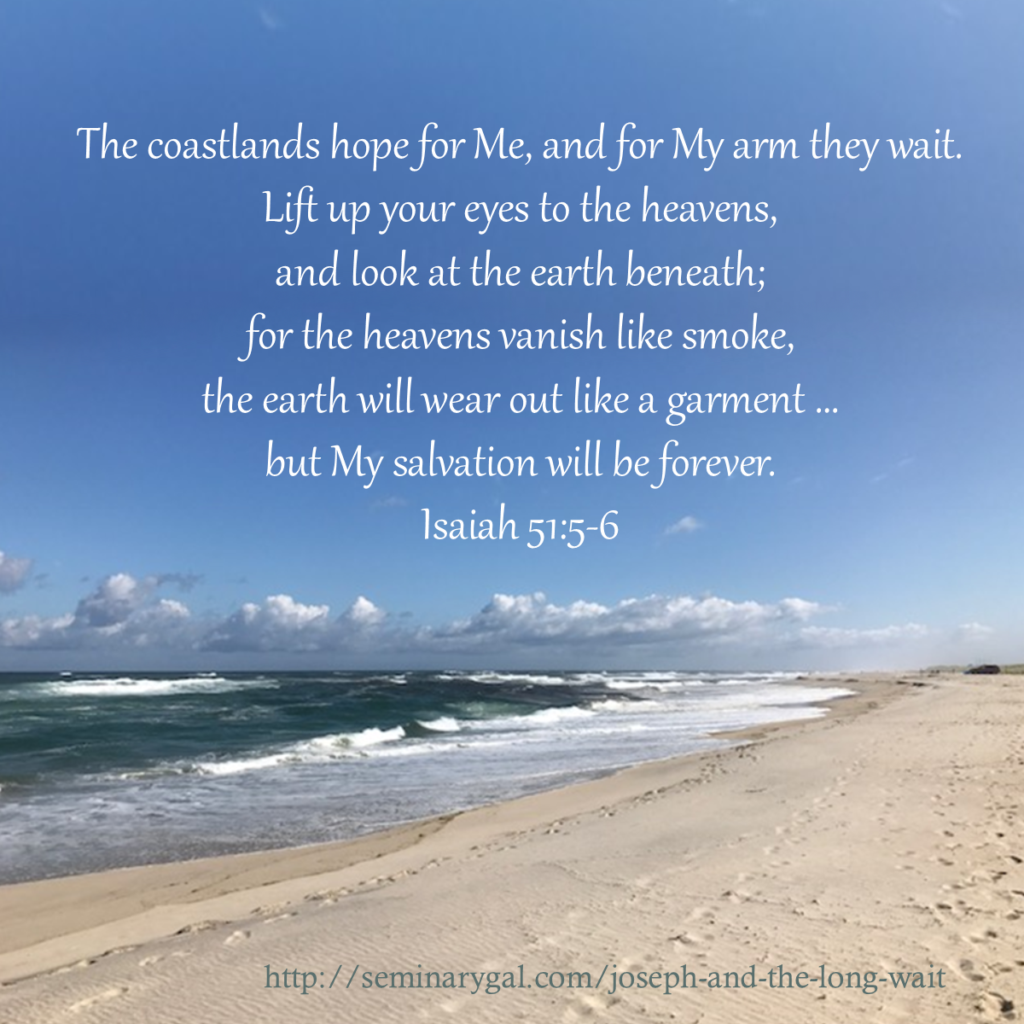Joseph and the Long Wait
Joseph awoke every morning probably never knowing whether the cupbearer had said something (but Pharaoh did nothing), or whether the cupbearer had resumed his position, remaining ever silent about Joseph’s dream interpretation.
Genesis 41:1 When two full years had passed, Pharaoh had a dream.
Two full years. Watching. Waiting. Seeing if anything would change.
Two full years. Nothing to be seen. Nothing to happen. Nothing changed.
Two full years.
Two … full … years.

Think about it:
- No one likes waiting. What do we do during shorter periods of waiting, like in a line at the store or the post office? How does that differ from behaviors during long periods of waiting?
- What happens to hope during longer waits, particularly long periods of waiting upon God?
- Read Isaiah 51:4 “Listen to me, my people; hear me, my nation: Instruction will go out from me; my justice will become a light to the nations. 5 My righteousness draws near speedily, my salvation is on the way, and my arm will bring justice to the nations. The islands will look to me and wait in hope for my arm. 6 Lift up your eyes to the heavens, look at the earth beneath; the heavens will vanish like smoke, the earth will wear out like a garment and its inhabitants die like flies. But my salvation will last forever, my righteousness will never fail.” God says, “speedily” and “on the way” but to “wait in hope.” How do those seem contradictory? What forms our confidence during the long wait?
- Joseph didn’t know if the cupbearer tried to help him but was ineffective, forgot to help him, or simply decided not to. What attitudes are present in each of those situations? Have you ever been there for other people, helping them, but when it came time for them to encourage you, they were nowhere to be seen? How does that feel?


Leave a Reply